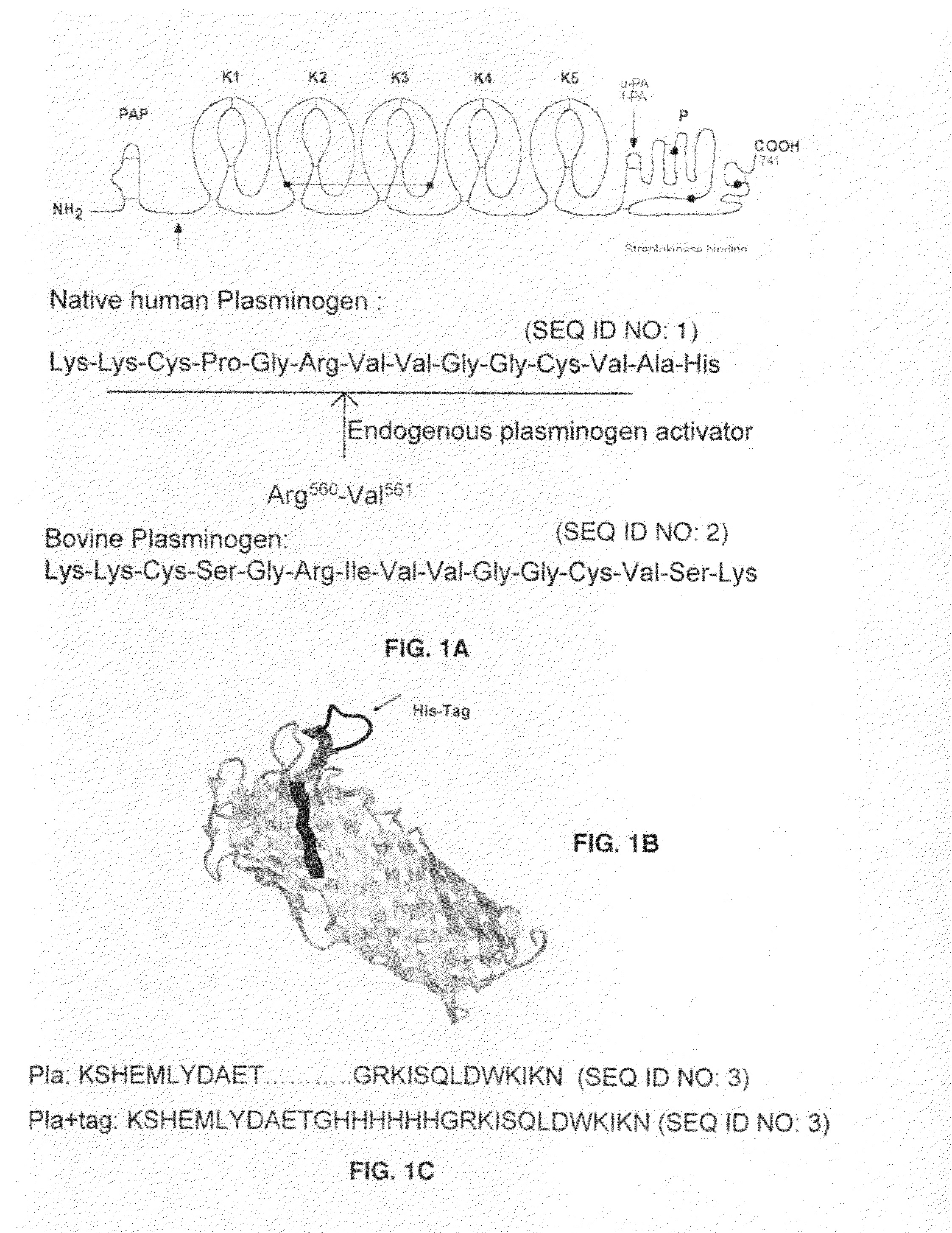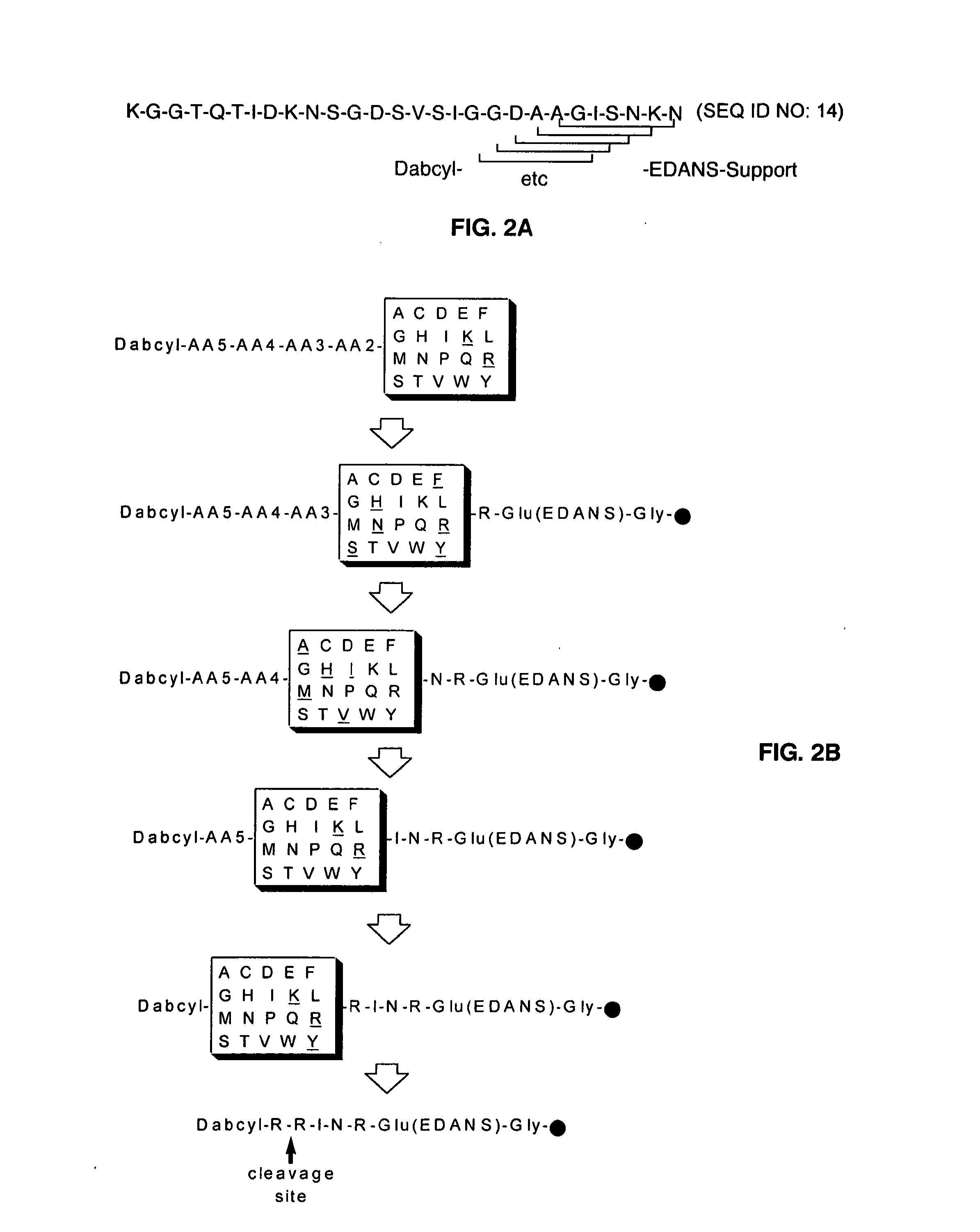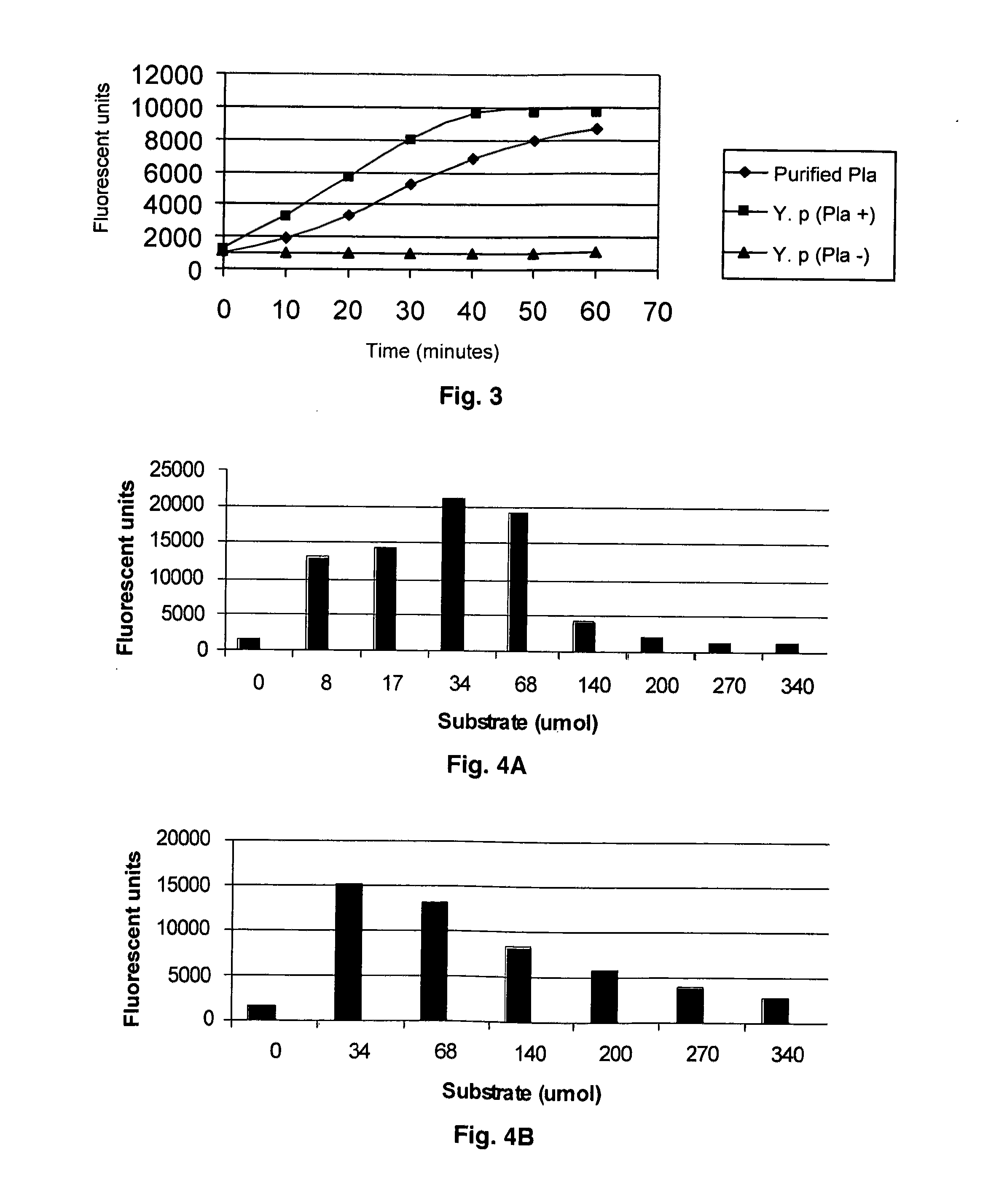Substrate peptide sequences for plague plasminogen activator and uses thereof
a technology of plasminogen activator and substrate peptide, which is applied in the field of protein chemistry, can solve the problems of high mortality rate of infected individuals, high mortality rate, and low inhibitory activity of compounds inhibiting plasminogen activator activity, and achieve the strongest inhibitory
- Summary
- Abstract
- Description
- Claims
- Application Information
AI Technical Summary
Benefits of technology
Problems solved by technology
Method used
Image
Examples
example 1
Labeling Plasminogen Activator with Internal Affinity Tag
[0062]Previously, known aspartic protease inhibitors were tested for their ability to block Pla activity. Examples of such inhibitors comprised a reversible inhibitor of aspartic proteases such as pepstatin A that inhibits cathepsin D, pepsin, renin and HIV-1 protease, inhibitor of pepsin that inhibits HIV protease and an inhibitor of renin. The inhibition assay was done using protocol of Enzolyte HIV-1 Protease assay kit (AnaSpec Corp. San Jose, Calif.). It was observed that the aspartic protease inhibitors tested did not block plasminogen activator activity.
[0063]Based on the sequence of human plasminogen, it was known that activation of plasminogen into plasmin occurs when plasminogen activators (t-PA, u-PA) cleave a unique bond between Arg560 and Val561 in the serine protease domain of human plasminogen resulting in two polypeptide chain, linked to each other via two disulphide bonds (FIG. 1). However, the mammalian PAs an...
example 2
Profiling of Plasminogen Activator Protease Specificity Using Combinatorial Fluorogenic Substrate Libraries
[0066]Initially a mixture of 3.2 million fluorogenic peptides where synthesized and screened in solution. After determining that small peptides ≦6 residues can serve as substrates the positional scan approach reported by Houghten was used to identify individual peptides (Houghten et al., 1991). In this approach one amino acid position is held constant while the others are varied. The Fmoc-Glu(EDANS)-Gly-Wang resin was divided into 20 equal portions, and each portion was coupled to an individual amino acid followed by coupling with an isokinetic mixture of eighteen amino acids (excluding cystine and hystidine) and then the final introduction of Dabcyl. This provides each vessel with a mixture of dimers with the known amino acid at position 1 and all other twenty amino acids represented at position 2. This process is then repeated for positions 3, 4 and 5.
[0067]Each well is then ...
example 3
Kinetic Characterization of Identified Plasminogen Activator Substrate
[0069]Plasminogen activator activity was measured in a fluorimetric assay using identified substrate DABCYL-Arg-Arg-Ile-Asn-Arg-Glu-(EDANS)-NH2 (SEQ ID NO: 5). In FIG. 3, activity is given as a function of time for both purified recombinant Plasminogen activator and an isogenic pair of Y. pestis strains either expressing or not the Plasminogen activator protease on the cell surface. Both purified and cell-associated Pla enzyme cleaved the substrate in a time-dependent way, reaching a plateau in about 60 min. Pla-negative mutant showed low background fluorescence indicating strict substrate specificity towards Pla.Kinetic parameters were determined by measuring Pla activity at 0-54 mM substrate at neutral pH and subsequent fitting of the resulting hyperbolic saturation curve (Km=3×10−5 M).
PUM
 Login to View More
Login to View More Abstract
Description
Claims
Application Information
 Login to View More
Login to View More - R&D
- Intellectual Property
- Life Sciences
- Materials
- Tech Scout
- Unparalleled Data Quality
- Higher Quality Content
- 60% Fewer Hallucinations
Browse by: Latest US Patents, China's latest patents, Technical Efficacy Thesaurus, Application Domain, Technology Topic, Popular Technical Reports.
© 2025 PatSnap. All rights reserved.Legal|Privacy policy|Modern Slavery Act Transparency Statement|Sitemap|About US| Contact US: help@patsnap.com



